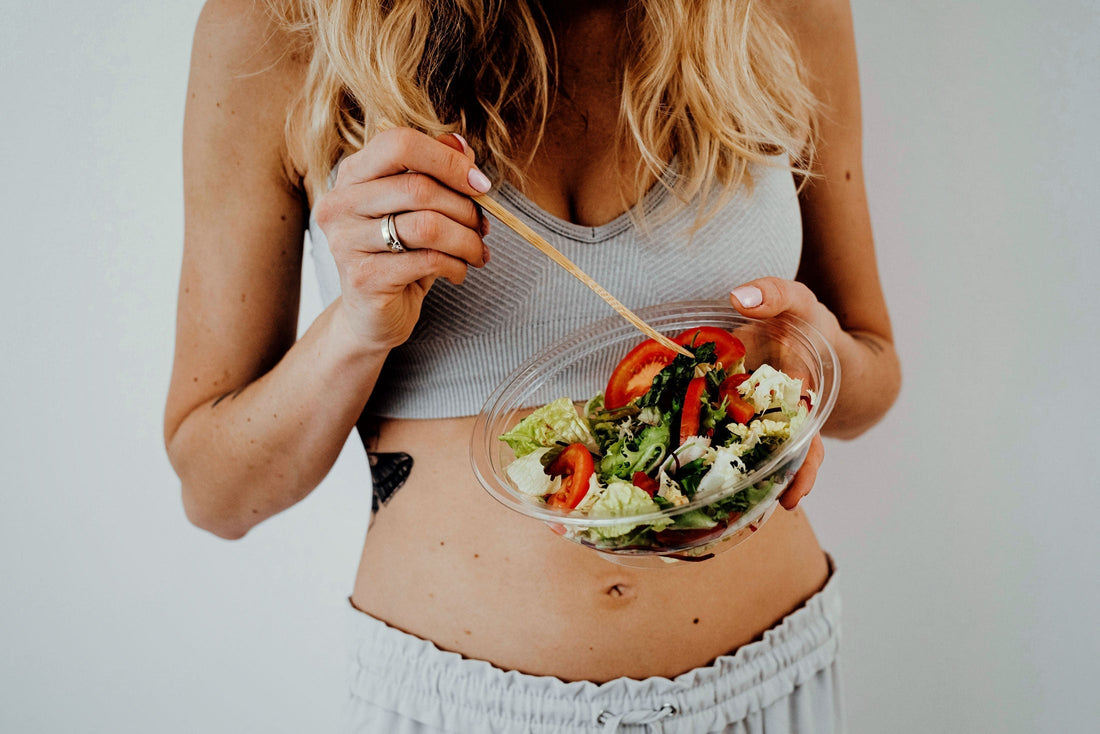Briana Rodriquez, RDN
The postpartum period is a time of profound physical, emotional, and mental change. While adjusting to life with a newborn, many moms experience shifts in mood and energy levels, making mental health a top priority. I’ve been there—as a mom who struggled with postpartum anxiety, I know how overwhelming it can feel. Nutrition plays a significant role in supporting mental health, as certain foods can help regulate mood, support brain function, and reduce feelings of anxiety or depression. Let’s dive into five powerful foods that can help new moms feel their best.
The 5 Foods
-
Fatty Fish (salmon, sardines)
Fatty fish like salmon and sardines are rich in omega-3 fatty acids, particularly EPA and DHA, which are essential for brain health. These healthy fats can help reduce inflammation in the body and support neurotransmitter function, both of which are critical for mood regulation. Studies suggest that maintaining adequate omega-3 levels may help reduce the risk of postpartum depression (Grosso et al., 2014). -
Leafy Greens (spinach, kale)
Leafy greens are nutritional powerhouses, packed with folate, magnesium, and antioxidants. Folate supports the production of serotonin, often referred to as the "feel-good" hormone (Bottiglieri, 2005). Magnesium is known for its calming effects on the nervous system, which can help reduce stress and anxiety (Barbadoro et al., 2015). Adding a handful of greens to your meals can provide a gentle but impactful boost to your mood. -
Eggs
Eggs are one of the best dietary sources of choline, a nutrient that supports brain function and mood regulation. Choline also plays a vital role in rebuilding and repairing cells, which is particularly important during the recovery phase postpartum. Research shows that higher choline intake during pregnancy and postpartum can support maternal and infant brain health (Caudill, 2010). Pairing eggs with a slice of whole-grain toast or some avocado makes for a quick and nourishing meal. -
Nuts and Seeds (walnuts, flaxseeds)
Walnuts and flaxseeds are excellent sources of healthy fats and zinc, a mineral that can help reduce symptoms of anxiety. Walnuts are particularly high in ALA, a plant-based omega-3, while flaxseeds are rich in lignans, which have antioxidant properties. Studies suggest that dietary zinc may play a role in reducing depressive symptoms (Swardfager et al., 2013). These can be easily added to oatmeal, smoothies, or yogurt for a quick nutrient boost. -
Fermented Foods (yogurt, kimchi)
Fermented foods are rich in probiotics, which support gut health. A healthy gut microbiome is closely linked to improved mood and reduced symptoms of depression and anxiety. Research highlights the gut-brain axis as a key factor in mental health (Dinan & Cryan, 2017). Incorporating foods like yogurt, kefir, kimchi, or sauerkraut into your diet can help maintain a balanced gut and promote overall mental health.
Practical Tips
-
Incorporating these foods into meals:
-
Add salmon or sardines to a salad or on whole-grain crackers.
-
Blend spinach or kale into a smoothie with frozen fruit and yogurt.
-
Make scrambled eggs or a veggie-packed omelet for breakfast.
-
Sprinkle walnuts or flaxseeds over oatmeal or yogurt bowls.
-
Serve kimchi or sauerkraut as a side dish or mix it into stir-fries.
-
Sample "mental health-boosting" day of eating:
-
Breakfast: Spinach and egg scramble with whole-grain toast and avocado.
-
Snack: Greek yogurt with walnuts and a drizzle of honey.
-
Lunch: Salmon salad with mixed greens, quinoa, and olive oil dressing.
-
Snack: Apple slices with almond butter.
-
Dinner: Stir-fried vegetables with chicken and kimchi on the side.
Prioritizing nutrition doesn’t have to mean overhauling your entire diet. Small, realistic changes can make a big difference in supporting your postpartum mental health. Start by incorporating one or two of these foods into your daily meals, and remember that nourishing your body is an essential part of taking care of yourself as a mom. You deserve to feel your best, one bite at a time. What are some of your favorite meals and snacks throughout pregnancy and postpartum?
Sources
-
Grosso, G., et al. (2014). Omega-3 fatty acids and depression: Scientific evidence and biological mechanisms.
-
Bottiglieri, T. (2005). Folate, vitamin B12, and neuropsychiatric disorders.
-
Barbadoro, P., et al. (2015). The impact of magnesium on primary insomnia.
-
Caudill, M. A. (2010). Choline bioavailability and role in brain health.
-
Swardfager, W., et al. (2013). Zinc and depression: Evidence for the involvement of zinc in the pathophysiology of depression.
-
Dinan, T. G., & Cryan, J. F. (2017). The microbiome-gut-brain axis in health and disease.




